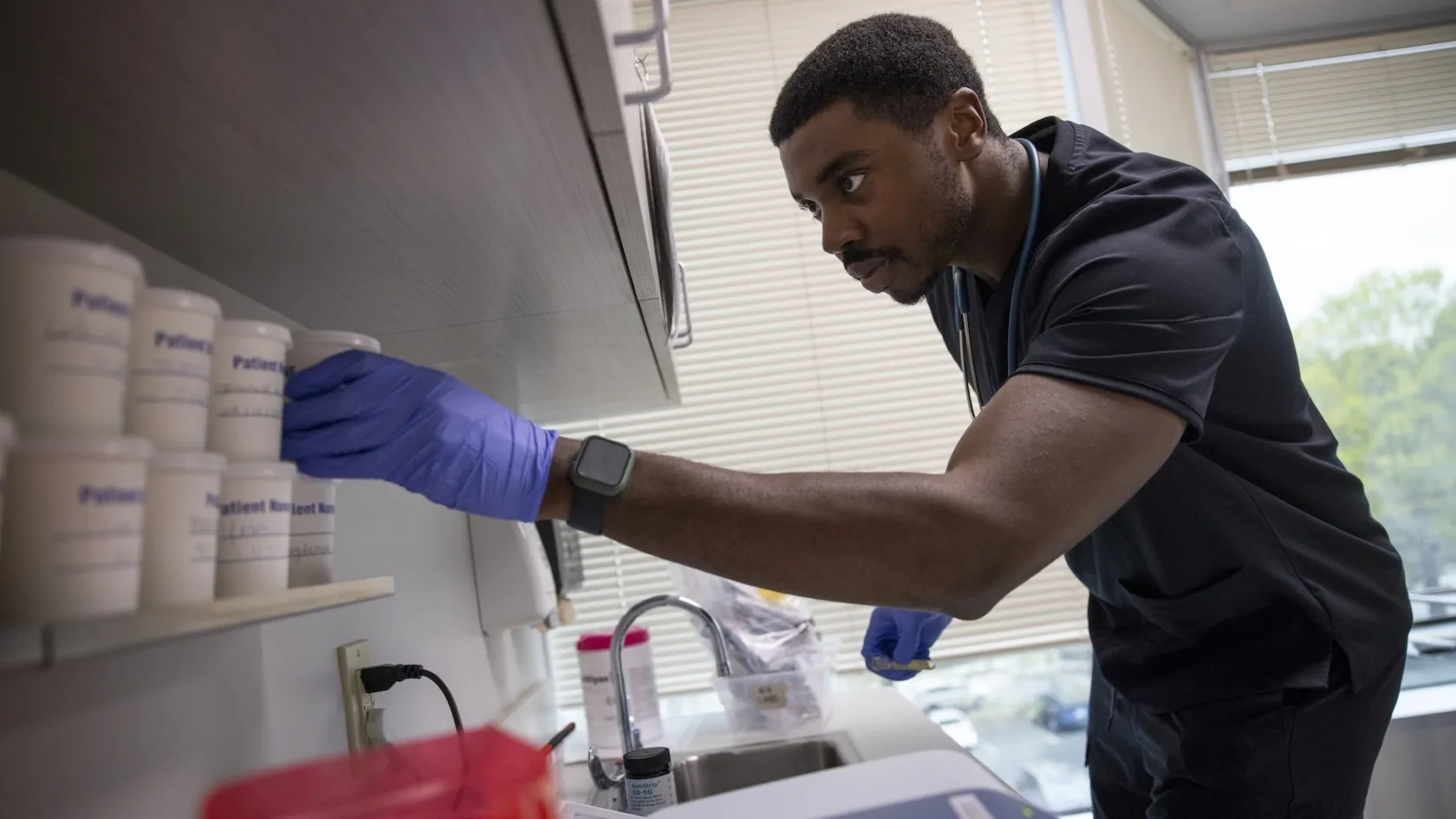What Ukraine’s Refugees Carry with Them
Nearly 7 million Ukrainian refugees are waiting for the opportunity to return home. Until then, they carry hope—and a few precious belongings—with them.
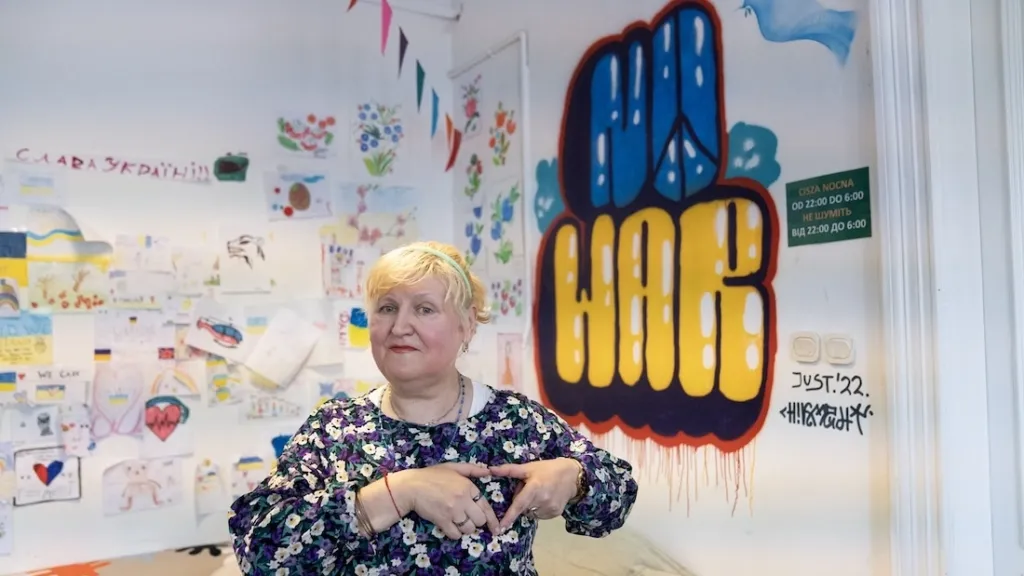
As of 2025, more than 122.6 million people worldwide have been forcibly displaced due to war, conflict, persecution, and human rights violations. Among them are approximately 6.8 million Ukrainian refugees, including over 6.3 million in Europe alone. Many have now spent over three years away from home—waiting, adapting, surviving.
Though every refugee’s story is different, the refugees supported by Project HOPE in Poland and Moldova share a common longing: to go back. Home is not just a place they fled, but a hope they carry with them—a memory, a mission, and a dream for the future.
We asked them to put into their own words what it means to be away from home for months, or even years. What changes when the temporary becomes long-term? What challenges emerge with time? And what does “home” mean now? This World Refugee Day, we honor their stories, and we recommit to supporting displaced families with empathy and hope—until the day they can finally return home.
‘Home Is My Soul, My History’
–Alla, from Kherson, Ukraine
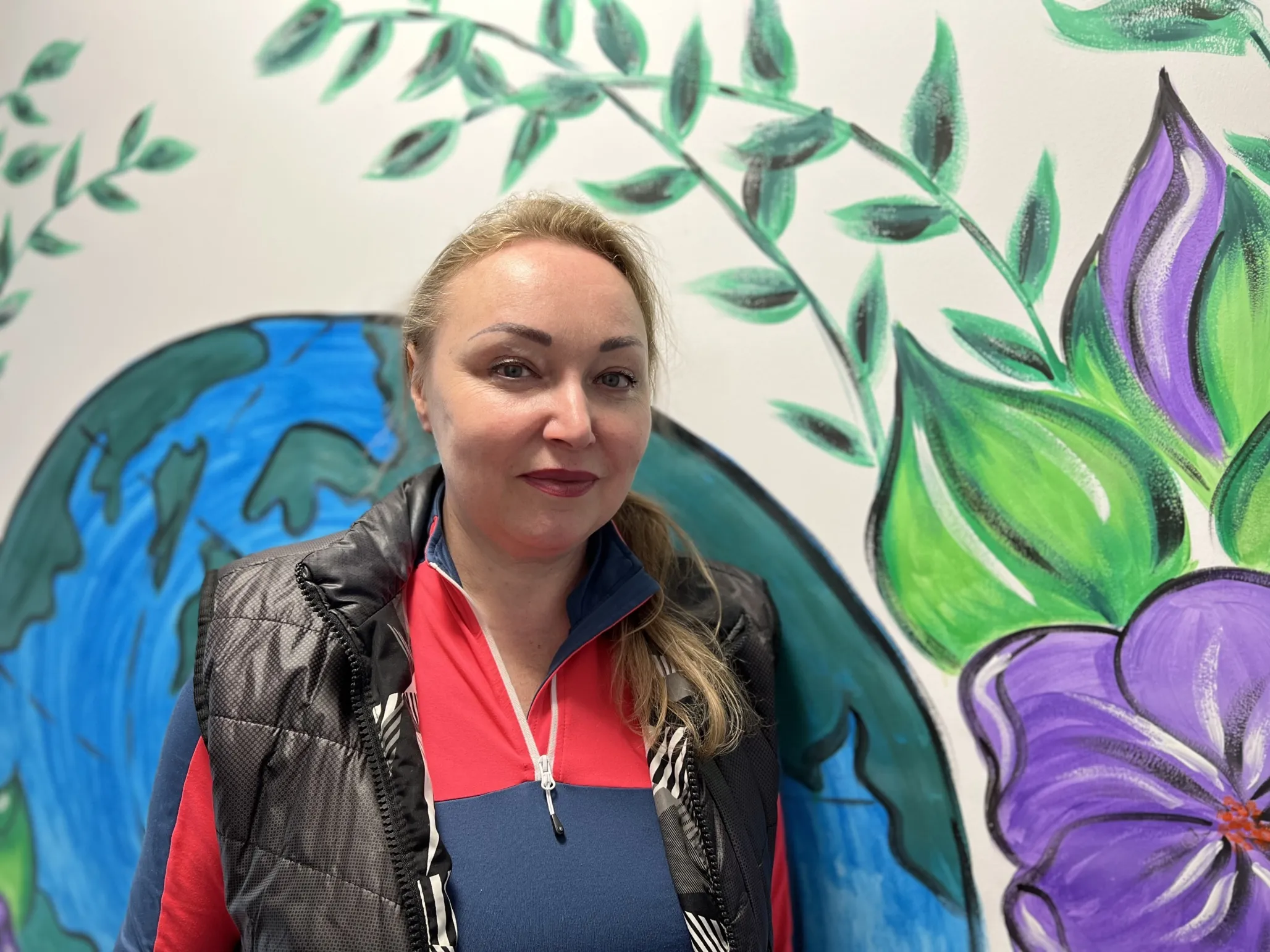
When Alla fled Kherson, she believed she would return within weeks. That was in 2022. Three years later, she lives in Poland, safe, but still displaced.
“For me, home is first and foremost people: my husband, my friends, my neighbors,” Alla said. “It’s the land where I was born, the place tied to all my dreams.”
Though she appreciates the safety in Poland, she admits, “No matter how comfortable life is abroad, it’s not home. I miss my animals. I miss my land. I want to come back.”
The war has changed her understanding of home: it’s no longer just a place, but a symbol of identity, love, and purpose. “I want to help rebuild my city. I want to visit the graves of my family. I know my country will be stronger, and I want to be part of that.”
“I want to help rebuild my city. I want to visit the graves of my family. I know my country will be stronger, and I want to be part of that.”
‘Home Is Where We’re Together’
–The Danilov family, from Kramatorsk, Ukraine
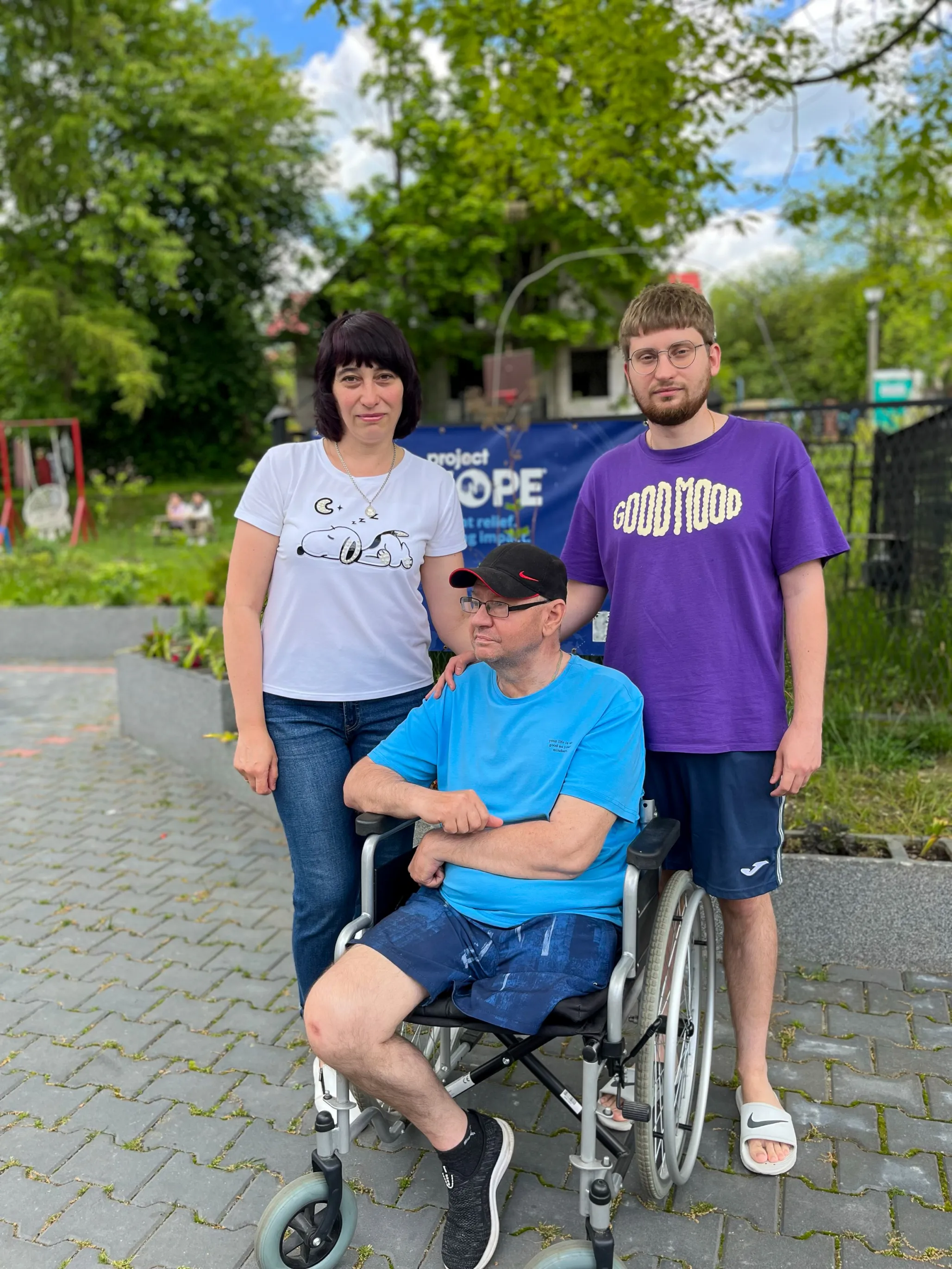
The Danilov family fled their hometown of Kramatorsk, Ukraine after bombings damaged their apartment and fear became a daily reality. Their escape was long, from Kramatorsk to Dnipro, then to western Ukraine and finally Poland. The evacuation process was tedious and challenging, as the husband has a disability.
“We packed only what we couldn’t live without,” the mother said, including her husband’s wheelchair. “When war strikes, the meaning of necessity changes.”
For the son, the hardest part has been economic survival. “I planned to work in Europe one day, but now I have to, just to support my family.”
Their understanding of home has shifted from walls to people: “Home used to be a place. Now it’s where we’re safe and together.”
Before leaving, the mother took one priceless thing: photos of family albums. “They keep our memories alive,” she said.
“Home used to be a place. Now it’s where we’re safe and together.”
‘My Home Is Wherever My Children Are Safe’
–Nataliia, from Zhytomyr, Ukraine
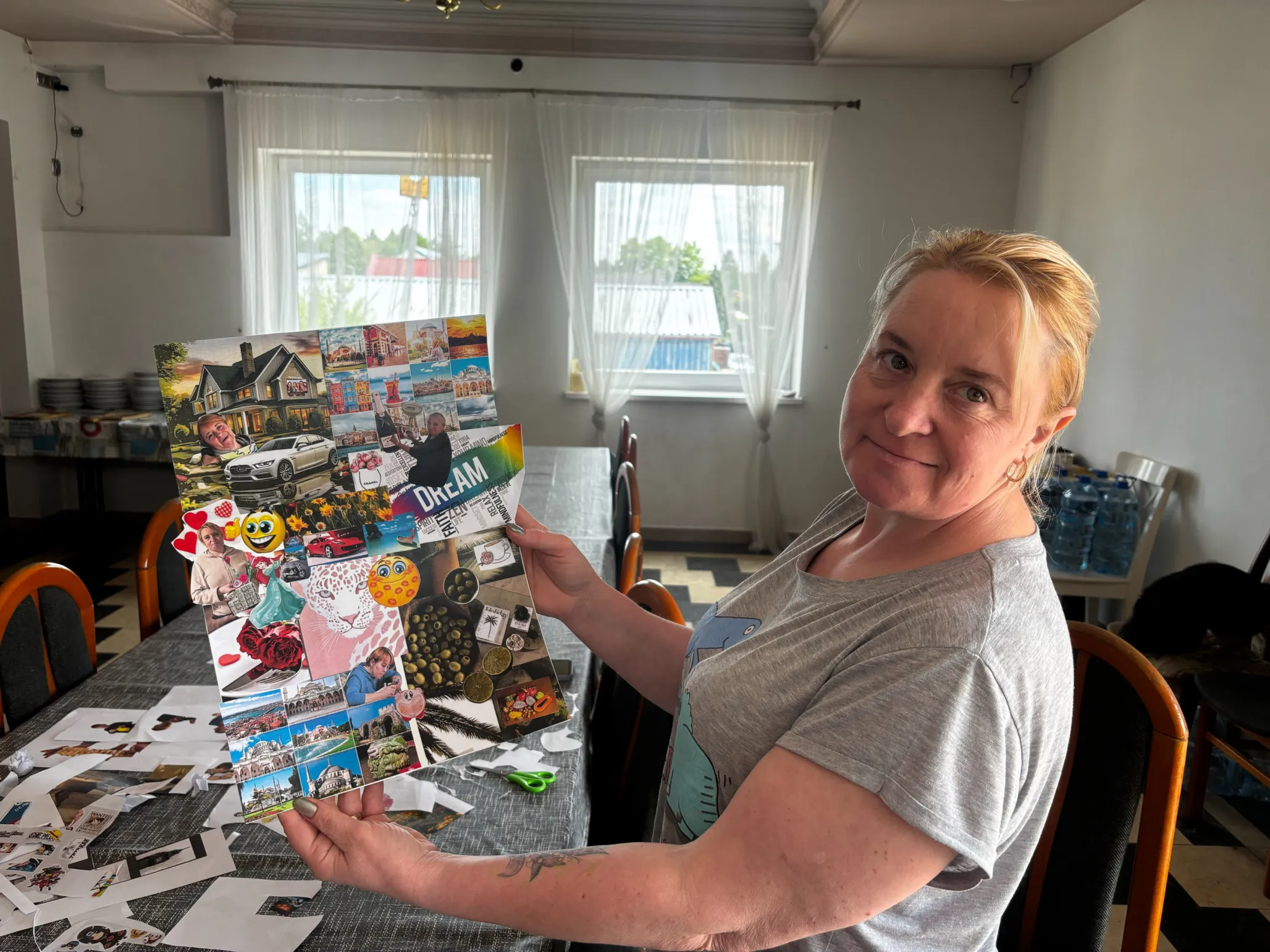
Nine months ago, Nataliia made the hardest decision of her life: to leave her hometown of Zhytomyr, Ukraine with her two youngest children. Her oldest daughter stayed behind.
“We didn’t know how long we’d be away. I just needed to protect my kids,” she said.
Integration was daunting. “I never imagined starting over in a foreign country. Different systems, different language—it was overwhelming,” Nataliia said.
But with help from Project HOPE’s safe space at the Angela center, Nataliia found support, therapy, and language classes. “Now I’m learning Polish and working part-time. That gives me hope.”
She didn’t bring many things, only her children and her strength. “Home is not a place anymore—it’s where they are safe,” she said.
“Home is not a place anymore—it’s where they are safe.”
‘The Journey Was Our Test of Love and Survival’
–Oleksandr and Iryna, from Kakhovka, Ukraine
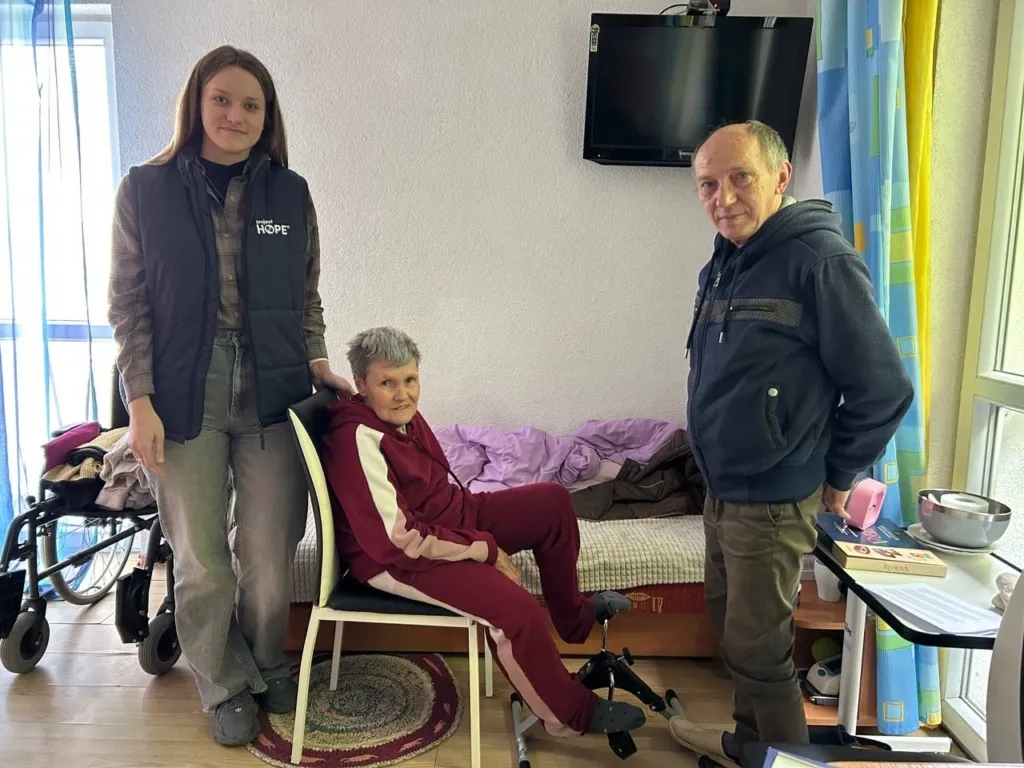
When their hometown of Kakhovka fell under occupation early in the war, Oleksandr and Iryna—a couple in their sixties, both living with disabilities—hoped it would be temporary. But the danger grew unbearable.
Their escape route was perilous: through occupied territories, Crimea, Belarus, and Lithuania, eventually reaching Poland. “I would push our suitcase, then come back for Iryna,” Oleksandr recalled. “Rain, fear of the unknown. … Step by step, we made it.”
In Rabka-Zdrój, they finally found peace. Iryna continues her physical recovery with support from Project HOPE, while Oleksandr handles paperwork, chores, and learning Polish. Their quiet strength is undeniable.
“What we want most is to live to see victory,” Oleksandr said. “To go back home one day. Just once more.”
“What we want most is to live to see victory. To go back home one day. Just once more.”
‘My Mind Lives in Odesa‘
–Angela, from Odesa, Ukraine
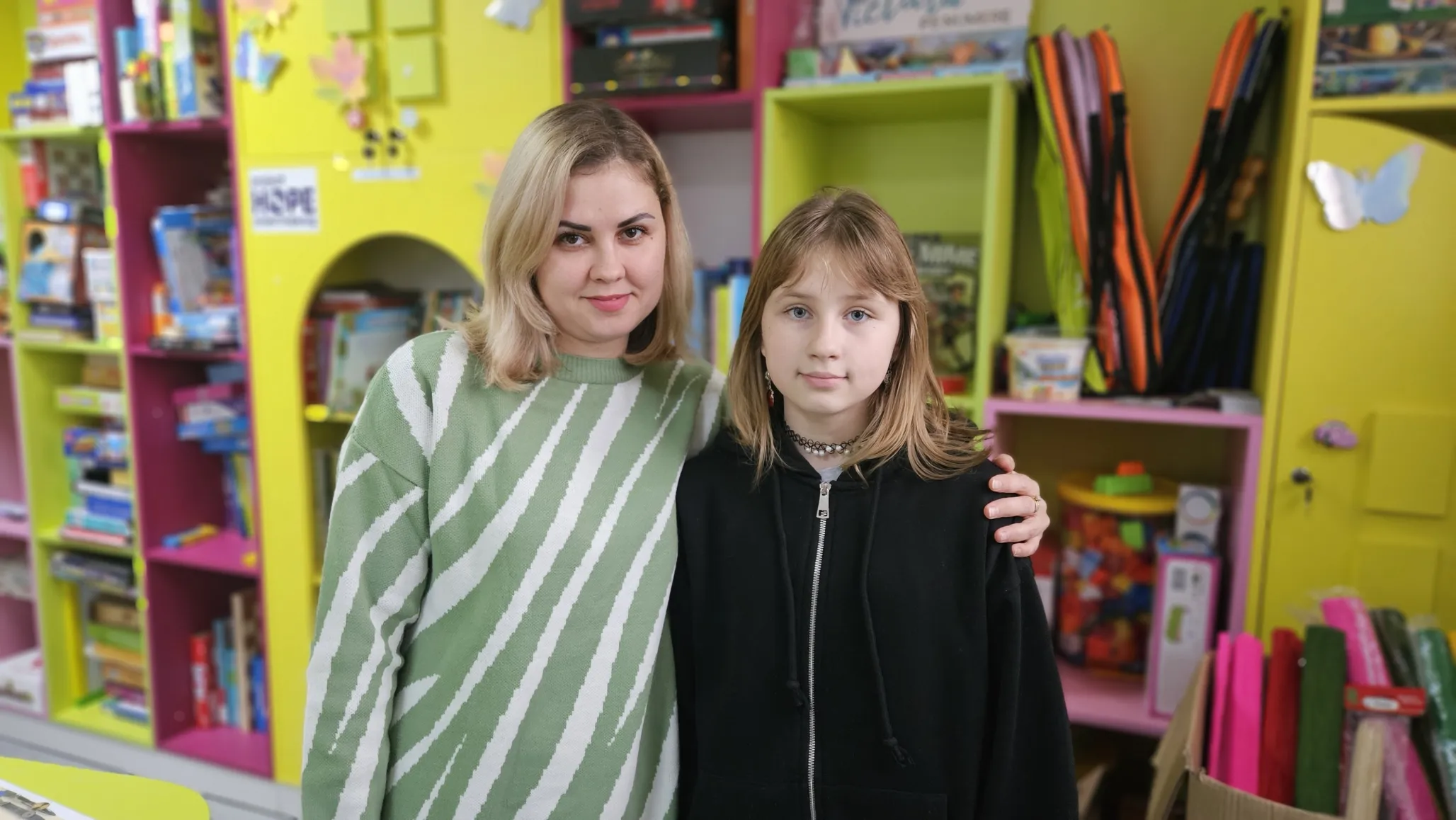
Angela left Odesa with her daughter and grandmother in March 2022. In Moldova, at first, everything felt foreign. But as months passed, they found community at a local refugee center supported by The Moldova Project and Project HOPE.
Workshops helped Angela reconnect with herself. “Creating with flowers was healing. It was the first time in months I felt peace,” she said.
With few job prospects due to language barriers and no degree, Angela focused on raising her daughter. Vouchers from Project HOPE allowed her to buy necessary items, especially skincare products for her daughter’s medical condition.
“I used to dream of traveling. Now, I dream only of going back to Odesa,” Angela said. “Every day I tell myself—just two more months. I know it won’t be the same. But I want to rebuild. I want to go home.”
“I know it won’t be the same. But I want to rebuild. I want to go home.”
Related Articles
